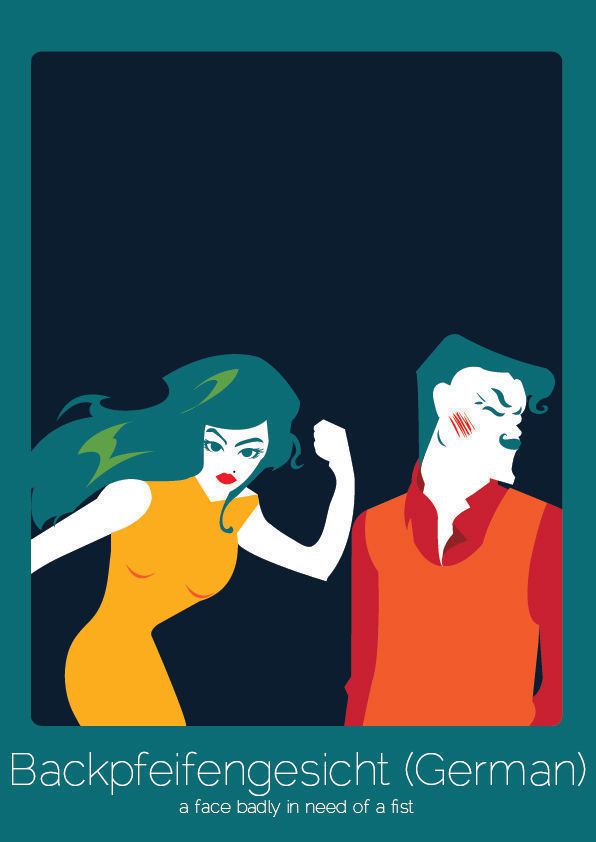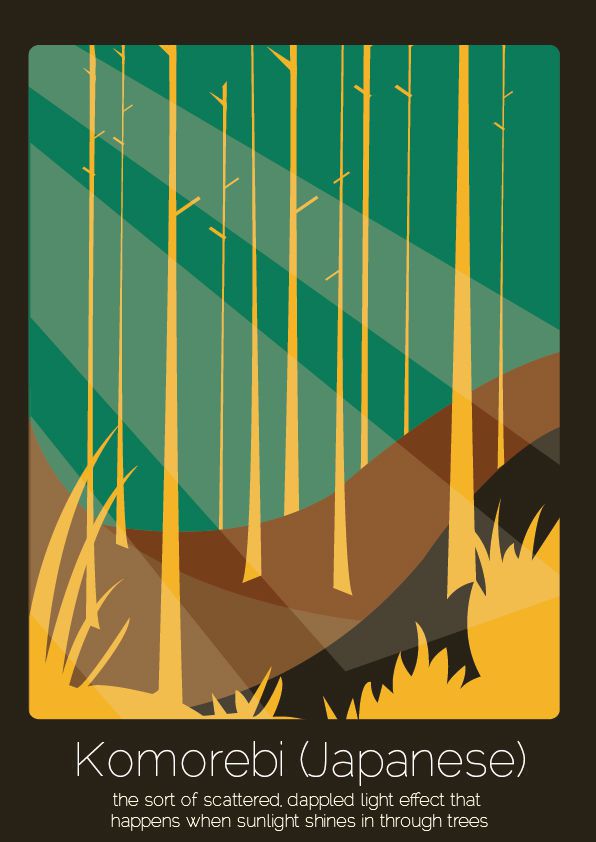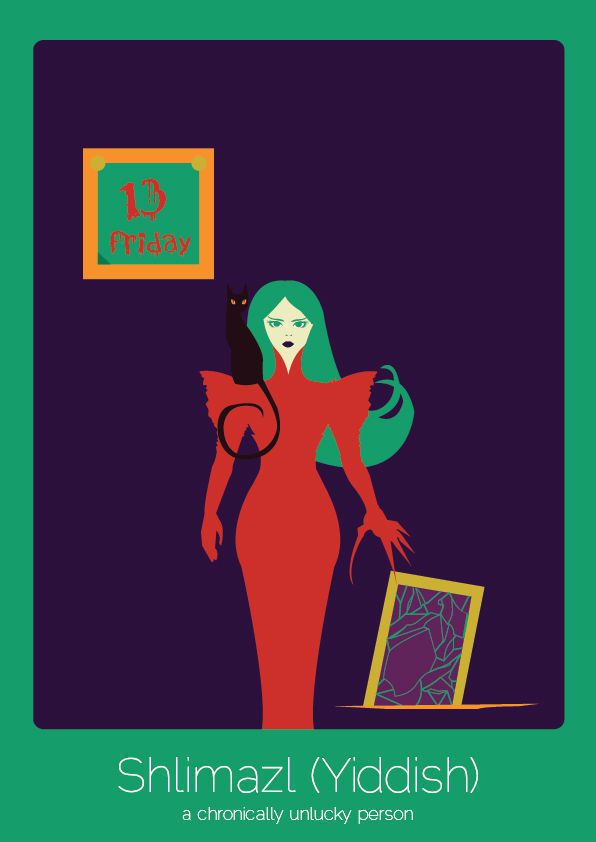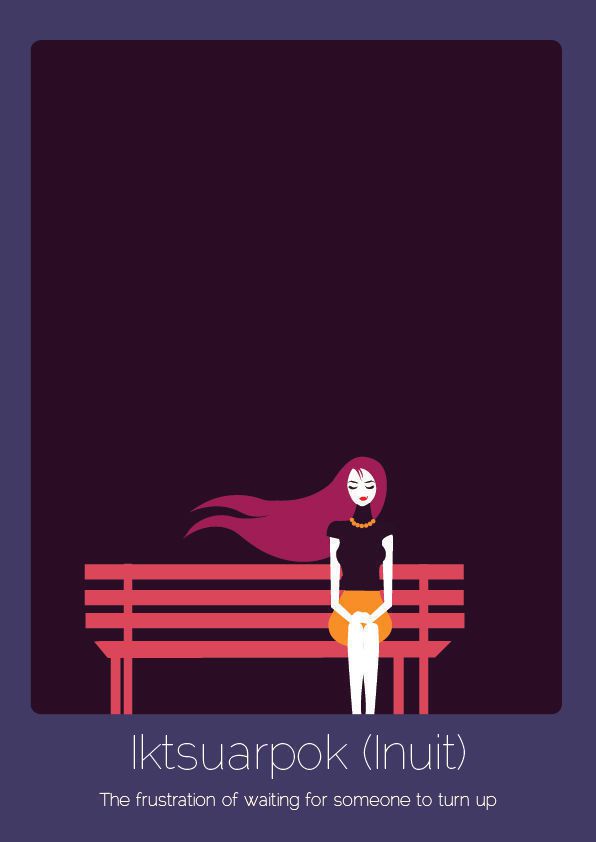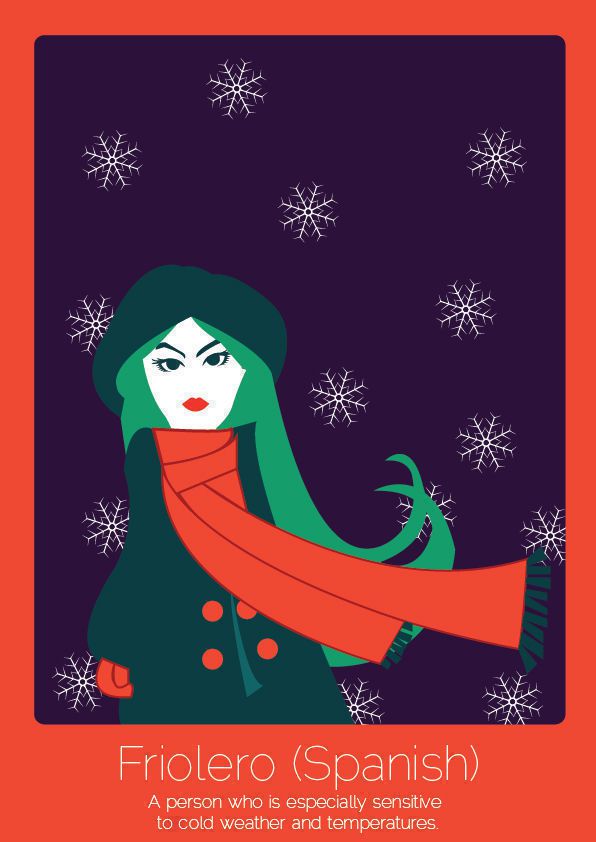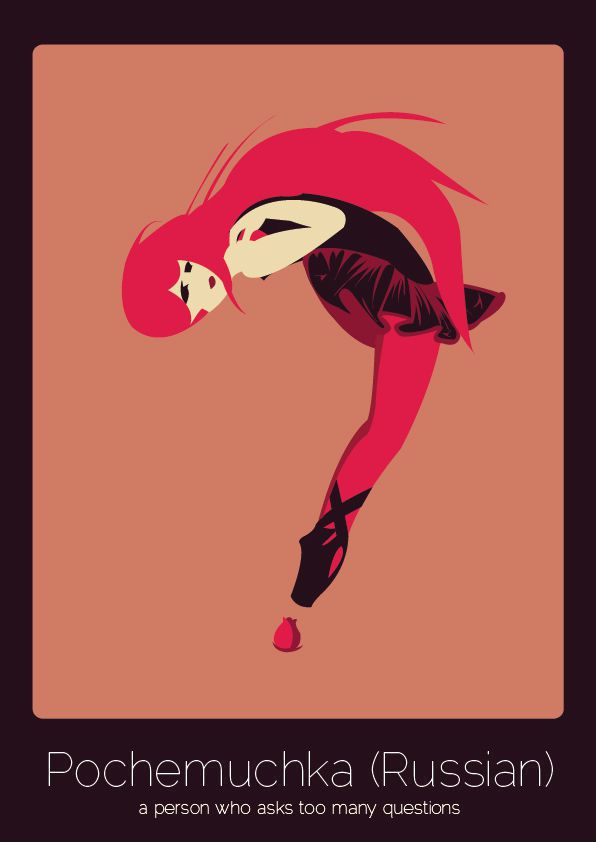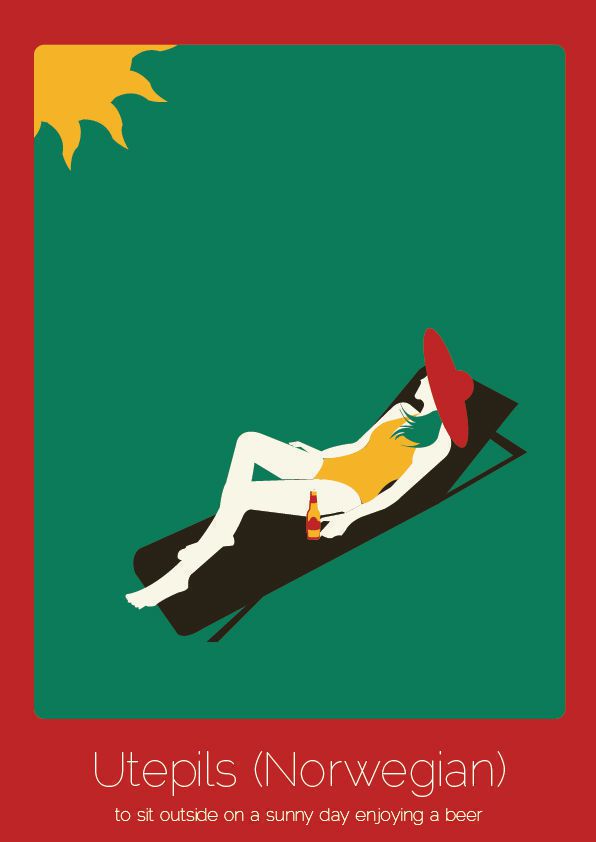Found in translation – untranslatable words, in pictures
If you liked our recent infographic on words that don’t exist in English, you’ll love this. New Zealand-based designer Anjana Iyer has been working on a project called Found in Translation, illustrating 41 ‘untranslatable’ words so far, with more to come.
We asked Anjana about the background to her project, and where she gets her ideas from. Here’s what she had to say…
What’s the 100 Days Project all about? How did you get involved?
The 100 Days project is basically choosing one creative exercise, and then repeating it every day for 100 days. It was started three years ago by Emma Rogan, who is quite a renowned senior designer in New Zealand. I came across this through one of the creative meetups happening in Auckland every week, and I decided to participate to improve my illustration skills.
What made you choose untranslatable words for your subject?
I wanted my 100 Days project to be something compelling enough to do every single day. I have had a fascination with learning new languages for the longest time and I just happened to come across this article about 14 words with no English equivalent on The Week. I knew I wanted to base my project around illustrations, since I have only been illustrating for the past two years and I still have a very long way to go, and this was a perfect medium to improve my skills.
This project was started last year as a part of the 100 Days project but I had to drop it after Day 41 due to some professional and personal commitments. It’s suddenly been brought to spotlight because of my friend who recommended me to DesignTaxi and it went viral from there. And with the growing response that it’s gotten, I have restarted the series to include more illustrations.
How did you choose which words to illustrate?
Well, when I first came across these words, I could think of one friend or another when it came to certain words. For example, the Yiddish word Shlimazl (which means a chronically unlucky person), reminded me of a classmate who had the worst luck with our professors. And so I picked words which we could all relate to in way or another and maybe share a laugh or two.
Do you have a favourite so far?
Iktsuarpok has a been a favourite word, simply cause it holds so much meaning. It’s waiting, whether you are waiting for the bus to show up or for the love of your life. It perfectly describes that inner anguish. From the point of view of illustration, I am very happy with how Schadenfreude turned out. That was fun to illustrate.
What’s your background as a designer?
I am a media designer with three years of experience. I love illustration and web design in equal measure. I quit engineering to become a designer. When it comes to illustrations, I love doing mostly vector work. Currently I am in the final year of my studies as a web design student.
Do you speak any languages yourself?
Well, being from India, I think we are born to speak several languages. I do speak about five Indian languages and I have a working understanding of French.
Can you give us a sneak preview of any forthcoming illustrations?
It’s quite surprising how some words can really unite people. The Portuguese word Saudade is such a popular one. I have lost count of the number of people who have requested an illustration of said word. And I am looking forward to completing that one.
To see some of her other illustrations, check out Anjana’s website.
Thanks to Anjana for talking to us; we’re looking forward to seeing more of her brilliant work!
Do you have any favourites? Or any words you’d like to see illustrated? Let us know in the comments.
What’s so good about Eurovision?
This Saturday is the final of the Eurovision Song Contest 2014 in Denmark, with 125 million people expected to watch across Europe and beyond. The contest, now in its 59th year, has become known for its wacky performances and tends to divide opinion; while some people love it (although maybe not as much as this man), others claim to find it tacky. But I think most people can agree that whether you take it seriously or not, Eurovision is good fun. (Even if sometimes you need a drink or two to help you through it.) Here are our ten favourite things about Eurovision:
1. Russian Grannies
I had to put this first because it was one of my favourite ever Eurovision moments. The song on its own is fairly forgettable, but what made it amazing was the elderly ladies who managed to incorporate baking into their performance at the 2012 contest. I’m still not sure what it had to do with a Party for Everybody, but it was brilliant, and I’m still disappointed that it didn’t win.
2. Riverdance
The Irish dance act were first discovered when they performed during the interval of the Eurovision Song Contest in 1994. Known for its amazing synchronicity, energy and rhythm, Riverdance went on to become a worldwide phenomenon. So if you’re not a fan, now you know who to blame.
3. Romanian rivalries
In the UK, it’s not seen as very ‘cool’ to enjoy Eurovision, but some other countries take it incredibly seriously. In Romania, for example, it’s a really big deal and apparently it’s traditional for the acts to try and win a place by discrediting their opponents.
4. The voting
How could I not mention the political voting? Half the fun of Eurovision is predicting who’s going to give points to who. Greece and Cyprus usually vote for each other, as do the Scandinavian countries and the Balkans. If that sort of thing interests you, this is a useful summary. Unfortunately, the political voting tends to leave the UK in a precarious position; we often get votes from Ireland, and sometimes Malta, but not very often from anyone else…
5. The UK
While we’re on the subject, let’s take a look at the UK’s Eurovision record. It’s hard to believe looking at recent history, but apparently it’s one of the most successful countries, winning five times since our first appearance in 1957. The last win was in 1997, with Katrina and the Waves, and since then we’ve not been doing so well, finishing last three times. The first of these was in 2003, when we scored an embarrassing ‘nul points’. Apparently this year’s entry, Children of the Universe, by singer-songwriter Molly, is expected to do well. I’ll believe it when I see it.
6. ABBA
It’s not often that a Eurovision act goes on to have a successful long term career, but one exception is Swedish group ABBA. Not only did they win the contest for Sweden in 1974, they went on to sell over 380 million albums worldwide. Their music also featured in the hit film Muriel’s Wedding and the award-winning musical, Mamma Mia! (And the movie version, which introduced the world to the singing ‘talents’ of Pierce Brosnan.)
7. Alcohol is Free
Regardless of your views on drinking, it’s hard not to tap your foot along to Alcohol is Free, by Koza Mostra and Agathonas Iakovidis, a.k.a. the Greek answer to Madness. They finished sixth in 2013.
8. Finland
We love Finland; they always come up with something memorable. Last year was the catchy Marry Me, which ended with that kiss, but nothing beats 2006 entry Hard Rock Hallelujah, by Lordi. Eurovision isn’t known for its heavy metal, preferring to stick to happy songs about how we should all love each other. But the alternative approach seemed to do the trick; the band won that year’s contest.
Warning: this video contains flashing lights and monster masks!
9. Language rules
Eurovision used to have a very strict rule about countries only singing in their native language, which has been lifted and restored a few times over the years. These days, many of the competing countries choose to perform in English, but some remain loyal to their own language; France and Spain are two examples. When I was growing up, there were more songs in other languages than there are today, and we used to enjoy turning on the subtitles and watching them struggle to translate the lyrics. Songs in English have won 28 times, followed by French, with 14 wins.
10. Fairytale
This was a popular choice in the EuroTalk office. Every now and again, Eurovision does actually produce a good song, and Fairytale was the one that we all thought of. The Norwegian entry for 2009 featured violinist Alexander Rybak, and won with a record-breaking 387 points out of a possible 492. For some reason, Alexander and his dancers were also a bit of a hit with the ladies…
Have we left out your favourite thing about Eurovision? Let us know in the comments!
Liz
How learning a language can help your career
 “Learning a different language has made me the person I am today. I enjoy working with global brands in over 18 different countries, and leading a team specialised in 5 different markets.”
“Learning a different language has made me the person I am today. I enjoy working with global brands in over 18 different countries, and leading a team specialised in 5 different markets.”
Sarah works as a Multilingual Search Manager at Search Laboratory, and she’s taken time out to tell us why and how learning a language has helped her develop her career.
Q. Your experience of learning a language…
– When did you start?
I started learning another language at the age of seven, when my family moved to Germany. I often say that I learnt the language by watching TV, but it was actually a combination of listening (which did involve TV), reading (mainly as schoolwork gave me no choice – I wasn’t the bookworm then that I am today), and being thrown in the deep end. If there’s no other communication option around you, you will pick up a language. It just might take some time.
– How did you get into languages?
I got into it through video tapes for children designed to help learn a second language, and then through tuition and being surrounded by the language in everyday life. For the first six months of living in Germany I went to an English school, but then transferred to a German one, so speaking the language was a must for grades, making friends, and just generally communicating.
– What was hard?
The first few months were pretty tricky. I’m known as a bit of a chatter-box (this is likely to come across in my answers), so not being able to communicate was tough, but also an incentive to just try the language and learn by doing. The best way to learn a language is to speak it. It’s also the scariest thing about learning a language.
These days the main challenge is remembering the right word for the right language. With two languages buzzing in my head, I can often recall the perfect word for what I want to say, but in the wrong language for the situation.
Q. How you have found being multilingual useful when searching for employment and building a career?
 Being multilingual has been very useful for my career, as it’s given me more options, and I think it’s also helped me stand out a bit in the employment crowd. This was especially true when I was younger, and just starting out. Though multilingual isn’t as unusual as you think these days.
Being multilingual has been very useful for my career, as it’s given me more options, and I think it’s also helped me stand out a bit in the employment crowd. This was especially true when I was younger, and just starting out. Though multilingual isn’t as unusual as you think these days.
It was also a way for me to narrow down my career search. I knew that I wanted to be part of a company that provided opportunities for multilingual speakers, and was equally interested in different cultures and understanding different markets.
Q. How do you use languages in your everyday role as a Multilingual Search Marketing Manager?
I manage our French, Spanish, Italian, Russian and Chinese team, so the language alone doesn’t help out; however, the language experience is vital. I feel that because I went through learning a language and living in a different country that I’m more empathetic to and understanding of the struggles of day to day life (or at least some of them – the team may disagree).
I also think that the language experience has made me very inquisitive about other cultures, and languages, which really comes in handy when looking into the differences of search behaviour and trends in other markets.
Q. Why do you think more people should learn more languages?
Because it’s great fun! And because it can open up career opportunities that you hadn’t even thought of yet.
I sometimes forget that I’m classed as multilingual as having more than one language is natural to me, to my family, and most of the people I work with. I think I’d be pretty bored if I only had one language to rely on.
Also, looking back and seeing all the opportunities I might have missed out on, is a bit of a scary thought.
I’m excited to learn more languages, though can’t decide of the languages which my team speaks, which one to start with. There’s just too much choice!
Do you use languages at work? Have you found knowing more than one language has helped you in your career?
Languages for the future: the top ten
A recent report by the British Council has laid out the ten most important languages for the UK’s future, in political, economic, educational and cultural terms.
According to the report, the ten most important languages, in order, are: Spanish, Arabic, French, Mandarin, German, Portuguese, Italian, Russian, Turkish and Japanese. I read this list with a certain amount of smugness that I speak Spanish, German and French – although my knowledge of key languages such as Mandarin and Arabic is, sadly, next to nothing. So feel free to give yourself a pat on the back if you can speak, or are learning, one of those ten languages.
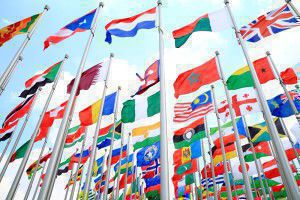 Unfortunately, the report also indicated that the numbers of UK residents actually learning these languages, especially the ones not taught in schools, are very low. On a positive note, around 15% of people can hold a conversation in French. However, only 6% are able to do so in German, 4% in Spanish and 2% in Italian. But the figures for the other languages are as low as 1%.
Unfortunately, the report also indicated that the numbers of UK residents actually learning these languages, especially the ones not taught in schools, are very low. On a positive note, around 15% of people can hold a conversation in French. However, only 6% are able to do so in German, 4% in Spanish and 2% in Italian. But the figures for the other languages are as low as 1%.
Perhaps one of the problems is that Mandarin, Japanese, Russian and Arabic all require learners to pick up another script. This might seem daunting, but is actually really exciting. Just being able to read simple words in another script gives you a huge sense of achievement, and you’d be surprised how quickly you can begin to decipher words from what previously looked like squiggles.
Hopefully if you’re reading our blog you already know the importance of language-learning, and that picking up a new language is an adventure rather than a chore! But maybe this list will give you an idea about which language you fancy picking up – maybe it’s time to start reviving your A-level French? Or be brave and give Arabic a try? Personally, I’m working on adding Italian to my list, which is proving interesting as I lapse back into Spanish as soon as I don’t know a word!
The report recommends a much greater focus on languages in schools and that businesses should invest in language training for languages that are useful in their industry. But don’t worry if your school days are behind you – it’s never too late to learn a new language!
Alex
8 bizarre superstitions from around the world
This month, we’ve been having a look at interesting superstitions from different countries. There are literally thousands of examples – here are just a few. We suggest they should be taken with a pinch of salt…
If you’re in Malta, don’t rely on the church clock to tell you the right time. Churches are sometimes fitted with two clocks that tell different times to confuse the Devil about the time of the service.
Approach toilets with caution in Morocco – there might be a genie living in the u-bend… They don’t give wishes and they certainly don’t like to be disturbed. If you need to go, just say the words ‘Rukhsa, ya Mubariqin’ (With your permission, O Blessed Ones). Also beware of going to the toilet at night, where you might run into a beast called ‘Maezt Dar L’Oudou’, the ‘Goat of the Lavatories’.
If you’re visiting Britain, you’ll probably find you need an umbrella with depressing regularity. But whatever you do, don’t open it till you get outdoors; it’s very bad luck to open your umbrella inside.
Elves are alive and well in Iceland. In a 2006 survey only 35% of Icelanders said that they thought the existence of elves was either impossible or very unlikely and local elves still take an active role in shaping modern Iceland: roads and building projects sometimes have to be changed to avoid destroying known elf homes.
In Japan, if you walk by a graveyard or a hearse passes you, you must tuck your thumbs inside your fists. This is because the Japanese word for thumb (‘oya yubi’) literally translates as ‘parent-finger’ and so by hiding them you protect your parents from death.
Ready to go? Have a seat. In Russia, if you’re going on a journey you have to sit down for a minute just before leaving the house, to reflect on the coming trip and make sure you’ve got everything you need. It’s also bad luck to say goodbyes over the threshold, so you should always say your farewells before you leave.
If you find yourself in Spain on New Year’s Eve, don’t be surprised if, when the clock strikes midnight, you notice everyone around you eating grapes. This has been a tradition since the early 20th century; eating one grape for each bell strike is believed to bring twelve months of good luck.
And finally, when in China, never leave rice on your plate at the end of a meal – for each grain left at the end of a meal, your future husband or wife will have that many pockmarks on their face.
We’d love to hear any more examples, so please do share them in the comments below. And good luck out there…
